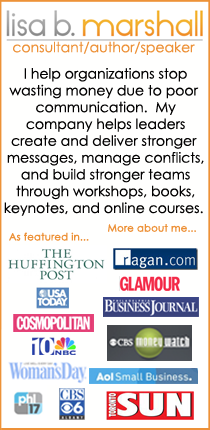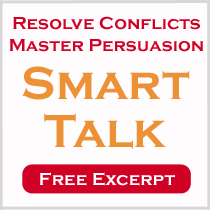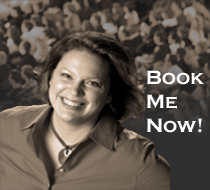Public Speaking
//
Lisa B. Marshall
//
//
Last week on The Public Speaker, I talked about how to create attention getting openings and memorable closes. I talked about how we can benefit from watching how directors achieve this in movies.
This week on The Public Speaker, I’ll talk about four basic building blocks of any good story.
Read more »
Public Speaking
//
Lisa B. Marshall
//
//
This week on The Public Speaker I talk about when it makes sense to read, when it’s OK to memorize (never) and when to use notes. I also give tips on how to read and how to use notes.
Interestingly, Bert Decker twittered this link to this article that talks about how our President Barack Obama doesn’t go anywhere without his TelePrompter.
Read more »
Public Speaking
//
Lisa B. Marshall
//
//
After my seminar people come up to be to ask questions they didn’t want to ask publicly. Without a doubt the most common “private” question I get is about accents. People want to know how they can reduce their accents.
For me, it’s not about reducing an accent, it’s about acquiring accent options.
Read more »
Public Speaking
//
Lisa B. Marshall
//
//
After my seminars people come up to ask questions they don’t want to ask publicly. Without a doubt the most common “private” question I get is about accents. People want to know how they can reduce their accents.
For me, it’s not about reducing an accent, it’s about acquiring accent options. So you can turn on and turn off an accent as needed.
Read more »
Public Speaking
//
Lisa B. Marshall
//
//
In my experience, when presentations (or training sessions) go horribly wrong, the root cause almost always boils down to one thing:
The presentation didn’t resonate with the audience because the material wasn’t specific enough for that particular audience.
Unless you take steps to adapt the material for your participants, you’re guaranteed to have a problem.
Read more »
Public Speaking
//
Lisa B. Marshall
//
//
I received an email response Jeremy Jones, a former teacher, who had some great tips for overcoming nervousness. He says to: make it fun, tell stories, and highlight an audience member.
I included almost all of his email because he seemed so passionate about his work. The first part explain his background (and is very inspiring) and in the second part he explains his tips.
Read more »
Public Speaking
//
Lisa B. Marshall
//
//
Are you wondering what Pecha Kucha is exactly?
You should check out this great video presentation that explains Pecha Kucha and demonstrates it done by Allison Lewis of Spiral Training & Associates Ltd. There’s also another somewhat “famous” example of Pecha Kucha by Daniel PInk (Wired Magazine).
Read more »
Public Speaking
//
Lisa B. Marshall
//
//
According the Ignite Seattle website, “Ignite Seattle is a geek event that combines on-site geekery, sharing, innovation (and drinking).” Oh and admission is free!
What more could you want? <smile>
This week (Hoochy Coochy? No. It’s Pecha Kucha!) in The Public Speaker, I talk what Ignite (and Pecha Kucha) are and also about the pros and cons of these presentation formats.
Read more »
Public Speaking
//
Lisa B. Marshall
//
//
Usually in this blog I focus on science specific techniques, but scientists also find themselves in need of making speeches at weddings, at memorial services and also informally when meeting people. The following podcast is a technique I created to develop a speech in six steps. It’s really simple to create, easy to deliver, and fun to listen to because the technique is based in storytelling.
Read more »
Public Speaking
//
Lisa B. Marshall
//
//
On my most recent episode of The Public Speaker, I discuss common mispronunciations.
For sure, it is quite embarrassing to make such a public mistake –especially since I am a communication professional. While wallowing in my embarrassment, I thought, “If I heard stories of mispronunciation from other people, maybe that would help me put things in perspective”.
Read more »








